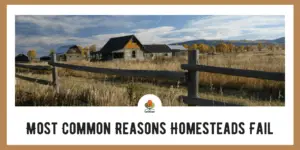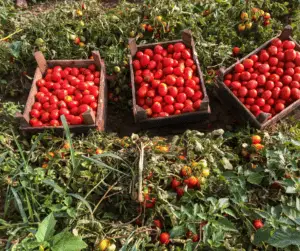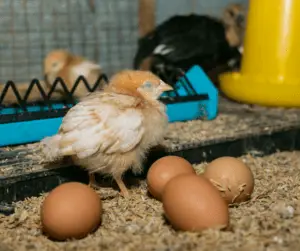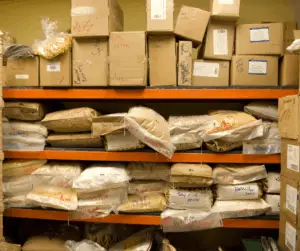Homesteading is one of the most simplistic approaches to life, but it’s not without its hurdles. Here’s what to anticipate and how to confront it head-on.

I’ve spent the majority of my life living off-grid. It’s taught me a lot about expecting the unexpected. Yet, sometimes, something can still go wrong no matter how hard you try.
There is a lot that can happen on a homestead, and there can be a ton of mishaps and mistakes to be made, especially for first-timers. No judgment here, though. This is a common predicament when you don’t have a homestead mentor.
You’re going to face a few situations that can make or break your experiments.
Fortunately, I and others I know have faced these reasons for failing already, so we’re going to save you time, money, and heartbreak by revealing them now.
Not everything can be prevented. Despite this, if you are careful and prepare accordingly, it will be a much more enjoyable experience. Let’s take a peek at each reason and how to avoid them!
7 Most Common Reasons Homesteads Fail:
1: No Plan
Most novices just getting into homesteading do not make a bulletproof plan. For a plan to work, it needs to factor in every aspect, not only the basics.
Livestock, gardening, food preparation, and utilities such as power and water should be factored in. If you don’t have a back-up plan for what to do when something fails, you may fall under due to unexpected circumstances if they do happen.
Plunging into homesteading blind with no real direction is just asking for trouble. It’s indispensable to understand what to do and make the correct choices in those “make it or break it” scenarios.
Make positive you write down all of your goals, what you’ll do when these unaccounted for scenarios occur, and how you’ll approach the problem to fix it.
For example, if you do not sell enough crops the first year, then you should have a budget that saves you, hence our next suggestion.
2: No Budget
A budget is critical for staying above the water on a homestead. Many things can come up out of nowhere, which you may not have the funds to cover.
Let’s say a cow becomes sick and needs medication. You should have money set aside to take care of it. Perhaps it has an infection or has broken a limb.
If your solar panels simply stop working due to a mechanical failure, then you should have money set aside to fix them. The focal point here is to be prepared for the unexpected.
For another example, if you sell crops to make an income, there may be times when you may not sell as many as you expect. This is why the budget is so important.
You should write everything down and make a note of it, including operating cost, short-term, long-term, and any personal needs. You should also factor in the potentially high cost of feed for livestock, plus any pesticides for the garden.
3: Too Many Projects
Suppose you’re anything like me and many others, then you probably look forward to starting the next big project. However, doing too many of these at once can leave you drowning.
If you start building a new chicken coop, do not start building a greenhouse until you are finished with the chicken coop.
Taking on too many plans at once is asking for trouble, so be patient and don’t rush things. You’ll likely be there a while, so you’ll have the time. Good things come to those who wait.
I’d suggest writing down your ideas and sitting on them. You may think of something even better, making the wait completely worthwhile.
I know from experience that jumping the gun can wreak havoc on a homestead, especially when you become overwhelmed with the task.
4: No Mentors
Homesteading seems fun, and it is, yet it’s so easy to jump in headfirst without asking questions. I’d suggest that everyone should talk with an experienced homesteader first.
By jumping in without a mentor, you’re on your own when problems arise. Something as simple as a garden that won’t grow can put you under.
Yet, if you have a mentor, they can help guide you and show you what should be done to correct the problem, such as proper fertilizer.
Mentors can be found anywhere; they’re out there. If you attend auctions, ask around at farmers’ markets, or simply search in homestead Facebook groups.
You may even consider buying land near another homesteader; this way, you can each visit each other easily. There is a reason why everyone knows each other in small towns. No matter how you find them, there’s sure to be someone with the knowledge and expertise to help.
5: Unrealistic Expectations
It’s all too frequent to have unrealistic expectations on a homestead; if you have big dreams, be patient.
A large, well-built homestead with every bell and whistle sounds excellent, and it’s absolutely possible. However, you cannot expect it to happen overnight.
The garden could potentially take a year to mature enough to make you money. Livestock also needs time to multiply.
Our bottom line here is always to expect the minimum. Following this mentality will save you big time. Start slow, and you’ll have the perfect homestead you envisioned in no time.
If you expect the garden to bring you $500 per month, and you were going to use that $500 to pay for feed, then the garden fails, what’s your strategy? Always plan ahead, as we’ve covered.
6: Avoiding Self-Sufficiency
For those of you that are accustomed to city life, it can be challenging to transition into a fully self-sufficient lifestyle. You’re used to the luxury of grocery stores and city water, to name a few.
I’ve seen many people come to my properties with an abundance of pre-cooked and packaged food. Most of the time, my friends almost always end up eating whatever I harvest for the day.
The lesson is not to be afraid to stop grocery shopping and truly live off-grid. Ten chickens can last you a few weeks at a minimum, and they can easily be preserved.
Start by meal planning first, decide what you’ll be eating most of the time, and determine what needs to be harvested. It’s a good idea to aim to harvest double that; this way, you have some wiggle room.
7: Unable To Sell Stock
Lastly, a huge reason why homesteads fail is due to the inability to sell the stock. If you have 70 chickens ready for sale, they’re not going to magically sell on their own.
You should understand where each auction is if you plan to sell them alive. If you’d like to sell the poultry meat, then you should acquire any licenses before they’re actually ready to sell.
This also holds for any other livestock, but especially crops. If you plan to make the majority of the money by selling produce, you’ll need to know the right places to sell.
In general, the best places to sell crops are by posting them up at farmers markets’. People love locally grown produce. Plus, if you do this regularly enough, you may find returning customers.
I see many individuals try to sell crops by posting online or through friends, but the numbers you need to make it a success aren’t going to happen this way.
A Few Tips to Help You Succeed
Make More Than You Need
Homesteading is meant to be entirely self-sufficient, which means you technically must rely on the stead for food and water.
If you need money to pay for certain things, such as insurance, make sure you have more than that. It’s never a good idea to have the bare minimum.
Another scenario is if you rely on the tractor to do necessary tasks, then make sure you have funds set back just in case it breaks down or an expensive tire pops.
For example, if your budget looks like you’ll need $5,000 for the year, aim for $10,000. Sure, it’s not easy to simply double an income like that.
However, by merely trying and making an honest effort, you’re already at a head start, as you’re actively trying to reach an obtainable goal that’ll set you up for success.
Build A Food Cache
The most critical thing to do to ensure smooth sailing is to preserve food and build a cache. This can be done by canning, curing, or dehydrating.
Food caches are particularly helpful during winter. If you find yourself often without food, then it could cause you to become unmotivated and begin to stray away from the homestead lifestyle.
Perhaps your livestock may not be yielding as much meat as you thought, which is why having a food cache is so critical.
It doesn’t have to be a massive amount—just enough to get you through slow times. Maybe stock up on around three months of food.
By doing this, you give yourself some additional cushioning for the unexpected. Plus, by having a food cache, you’ll have more time to build your livestock numbers up.
Make Connections
The best idea to do when you get into homesteading is to make connections. A great way to do this is by attending auctions, where you’ll inevitably find others to talk with.
They don’t even have to be homesteaders. Just making connections with a local farmer could save you when problems arise with your garden or livestock.
If you plan or want to make money by selling crops or livestock, they could be potential customers or even may know where you could sell the product quickly.
If you have not yet built a homestead, I suggest visiting one before you jump into it. Just one visit can teach you a lot about what should and shouldn’t be a priority.
At the very least, talk with others online. There are plenty of forums online, many of them on Facebook. It’s not uncommon at all to make friends online; this will be a huge help.
Open Questions Regarding Homesteading
Can I Get Free Land?
After the homestead act ended in 1976, there have not been many ways to obtain free land. However, there are a couple of good alternatives you can try to get free land.
You can visit here, where you can apply to get free land in Kansas. Many other states also offer this frequently so they can acquire new residents to move to their state.
Texas also has opportunities to obtain free land. You’ll need to call Texas Economic Development Corp at 956-969-3024.
Are Homesteads Profitable?
Homesteading can be extremely profitable if you play your cards right. For example, 100 honey bee hives can net you up to twenty-five thousand each year.
Livestock can make you plenty of money too, but may not be profitable until after a year. It’s also going to take time for the garden to fill out and become plentiful.
The average income for a homestead is roughly $500 per month. However, most homesteaders do not make business their first priority, so the potential is higher.
What’s The Fastest Money Making Method?
If you aspire to secure money fast, then breeding and selling chickens will provide the fastest income. Chickens are very easy to sell; I’ve seen 50 chickens get sold within minutes at auctions.
Beehives can provide quick income, but it may take at least a few months. It’s not going to provide the revenue that it would after a year, though.
You could rent out a portion of your land for purposes such as horse boarding, which could net you upwards of $500 per month, as commercial options can be much higher.
Verdict
Homesteading is one of the cheapest ways to live, and while the big picture is simple, it’s the trifling things that will get you.
To be successful, you should first make a concrete plan and take into account any expenses that may arise. This way, you are prepared.
You should make plenty of connections; so you can ask questions when things get complicated and a second or third opinion is needed.
If you jump into homesteading without a steady foundation, you may move too fast and hit challenging problems.
By contrast, if you plan everything out, and prepare for the unexpected and work it into your budget, it will work.



